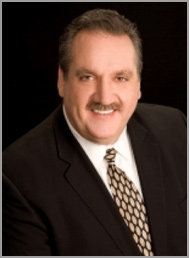Why Would a Pastor Study Psychology? by Dr. Jeff Walker
Why Would a Pastor Study Psychology?
Dr. Jeff Walker
 Rev. Jeff E. Walker was born and raised in the State of Illinois. He attended Central Bible College of the Assemblies of God and is a graduate of Rhema Bible Training Center. He earned a Bachelor of Arts degree from Western Illinois University, a Bachelor of Science in Psychology and Master of Arts in Professional Counseling degrees from Liberty University. He received Master of Divinity and Doctor of Ministry degrees from Oral Roberts University as well as a Doctor of Clinical Psychology degree from Trinity College of Graduate Studies which included an internship at the Betty Ford Center in Rancho Mirage, CA. Jeff and his wife, Melissa, pioneered Victory Christian Center in Palm Springs, CA in 1982, and continue to lead that congregation today.
Rev. Jeff E. Walker was born and raised in the State of Illinois. He attended Central Bible College of the Assemblies of God and is a graduate of Rhema Bible Training Center. He earned a Bachelor of Arts degree from Western Illinois University, a Bachelor of Science in Psychology and Master of Arts in Professional Counseling degrees from Liberty University. He received Master of Divinity and Doctor of Ministry degrees from Oral Roberts University as well as a Doctor of Clinical Psychology degree from Trinity College of Graduate Studies which included an internship at the Betty Ford Center in Rancho Mirage, CA. Jeff and his wife, Melissa, pioneered Victory Christian Center in Palm Springs, CA in 1982, and continue to lead that congregation today.

 The primary roles of a pastor are to feed the spirit and to shepherd the soul of each woman or man the Lord entrusts to the care of that minister. The soul, or psuche (I Thes 5:23) in Greek, has much to do with the mental health of an individual. While the Church and pastors seem to have crossed over the hurdles of the subjects of sex and money and those being addressed in appropriate ways from pulpits, one hurdle remains to be jumped. Mental health and psychology may be a final frontier with regard to the efficient and effective application of the Gospel in helping God’s people.
The primary roles of a pastor are to feed the spirit and to shepherd the soul of each woman or man the Lord entrusts to the care of that minister. The soul, or psuche (I Thes 5:23) in Greek, has much to do with the mental health of an individual. While the Church and pastors seem to have crossed over the hurdles of the subjects of sex and money and those being addressed in appropriate ways from pulpits, one hurdle remains to be jumped. Mental health and psychology may be a final frontier with regard to the efficient and effective application of the Gospel in helping God’s people.
Imagine having a church member who, though attending your church regularly, could not benefit from the transforming power of scripture because of a physical ailment which caused them to be deaf. You would likely do everything in your power (both naturally and spiritually) to assist and encourage such an individual in receiving any available help they needed to have their hearing restored.
There are men and women in your church who suffer from a different kind of deafness. They experience psychological deafness. And they, as those with physical deafness, may not be benefitting fully from your ministry. Whether such “deafness” results from mental illness, a personality disorder or a childhood trauma which has resulted in faulty internalized core beliefs, people can be hindered without proper help.
It is generally agreed among religion and mental health researchers that pastors are often sought in times of emotional difficulty and serve as front-line primary mental health caregivers in many communities. (Weaver, Flannelly, Garbarino, Figley & Flannelly, 2003 and Lish, Fitzsimmons, McMinn & Root, 2003). As such, a pastor who perceives himself as a “professional” might be well served by studying psychology in order to enhance his (or her) ability to meet mental health needs. That doesn’t mean having to earn a degree, necessarily. Simply reading some good books on various subjects could be very helpful for both pastors and their constituents. Here’s the reality….psychology is simply the scientific study of motivation and behavior.
In my experience, today’s churchgoer wants to talk about mental health issues. If we fail to address them, their needs may go unmet or they are left to fend for themselves in that clinical world that can sometimes be unfriendly turf for Bible believing Christians. With a pastor’s informed guidance, they will likely be much safer. The good news is studying psychology does not require us to change our message. No, we maintain a good news message. Our message is simply applied more thoughtfully, skillfully and intentionally. A brilliant man of God, well trained in Theology and Psychology, once made this observation in an attempt to challenge young ministers to work diligently on their preaching, “Both brain surgeons and butchers use a knife. Which one are you?” I believe I am a better pastor and preacher because of my understanding of psychology. I have served the same congregation for 29 years and I’m more confident in the healing and transforming power of God’s Word than I’ve ever been…even after adding Licensed Clinical Psychologist with my Pastor title.
On a personal note, I’m sure a part of my extensive study of psychology was motivated by my own need to repair brokenness in my life. I love to learn and the educational process was invigorating to my mind and spirit. It was also a wonderful healing adventure…one that is still in progress. Should you decide to study psychology in whatever form that might take, I bless your journey.
REFERENCES
Lish, R. A., Fitzsimmons, C. R., McMinn, M. R., & Root, A. M. (2003). Clergy interest in innovative collaboration with psychologists. Journal of Psychology and Christianity, 22 (4), 294-298.
Weaver, A. J., Flannelly, L. T., Garbarino, J., Figley, C. R. & Flannelly, K. J. (2003). A systematic review of research on religion and spirituality in the Journal of Traumatic Stress: 1990-1999. Mental Health, Religion & Culture, 6, 215-228.


